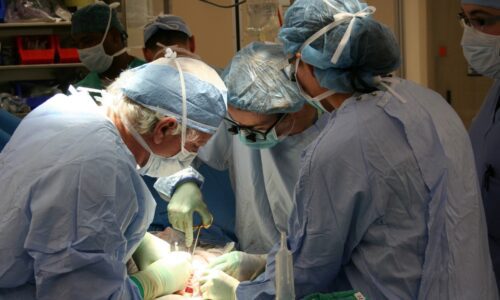Building a Healthier You: Small Changes, Big Impact |

In today’s fast-paced world, many of us lead extremely active lifestyles—juggling work, family, school, and social responsibilities. With so much going on, it can be easy to neglect the very things that keep us healthy. From eating right and getting enough sleep to staying hydrated and limiting screen time, taking care of your health can feel overwhelming. But it doesn’t have to be.
On this episode of Ask the Doc: No Appointment Needed, Dr. Kamaljit Kaur, a board-certified primary care and lifestyle medicine physician at KKaur MD, walks us through how to take back control of our well-being using practical, science-backed strategies and answers viewer questions on everything from migraines to screen time struggles.
What Is Lifestyle Medicine?
Lifestyle Medicine is a holistic approach to preventing, managing, and even reversing chronic diseases. According to Dr. Kaur, it’s built on six fundamental pillars:
- Whole Foods, Plant-Based Diet
- Regular Physical Activity
- Restorative Sleep
- Effective Stress Management
- Avoidance of Risky Substances (like tobacco, excess alcohol, and drugs)
- Strong Social Connections
These six areas aren’t just suggestions—they’re proven methods that help people live longer, healthier, and more joyful lives.
Common Health Questions Answered
How Can I Prevent Sinus Infections and Migraines?
Frequent sinus infections or migraines might be a sign of an underlying issue like allergies, structural sinus problems, dehydration, or poor sleep. A full evaluation by your doctor—or even a referral to an ENT specialist—can help uncover the root cause and develop a treatment plan.
What Can I Do About a TMJ Flare-Up?
Temporomandibular joint (TMJ) pain can stem from many causes including teeth grinding, jaw misalignment, tight facial muscles, or even genetics. A dentist can best diagnose the issue and offer solutions such as mouth guards, physical therapy, or bite realignment.
How Is Parkinson’s Disease Diagnosed?
Parkinson’s is a progressive neurological condition with no single test for diagnosis. Key symptoms include slowness of movement (bradykinesia), resting tremors, rigidity, and postural instability. Doctors use a combination of clinical assessment and testing to rule out other causes and guide treatment.
Healthy Habits That Work
When asked about how to stay healthy amidst a busy life, Dr. Kaur emphasized gradual change over perfection. “Don’t try to be a whole new person overnight,” she said. “Start with one healthy habit at a time.”
Here’s Dr. Kaur’s Top 10 Tips for building a healthier lifestyle:
- Minimize Ultra-Processed Foods – Think chips, soda, and sugary snacks.
- Eat a Whole Foods, Plant-Based Diet – Even reducing meat intake can help.
- Exercise Regularly – Mix cardio and strength training.
- Prioritize Restorative Sleep – Aim for 7–9 hours nightly.
- Manage Stress – Use mindfulness, therapy, or hobbies to decompress.
- Avoid Risky Substances – Limit alcohol, smoking, and excess caffeine.
- Foster Social Connections – Relationships impact health as much as diet.
- Get Preventative Screenings – Catch issues early with regular checkups.
- Limit Screen Time – Use “Do Not Disturb” settings to unplug.
- Stay Hydrated – Your body needs consistent hydration to function properly.
Audience Questions That Hit Home
Is Coffee Really That Bad?
Drinking up to 400mg of caffeine daily is generally safe, but that depends on your health conditions. Also, beware of hidden sugars and fats in creamers and flavored coffees.
Should I Be Worried About My Sister’s Drinking?
Drinking multiple glasses of wine daily could indicate more than just social drinking. Approach your loved ones gently, encourage open dialogue, and help them seek support if needed.
How Can I Limit Screen Time Without Falling Behind?
Dr. Kaur recommends using “Do Not Disturb” modes and establishing device-free hours. The goal is balance—not eliminating screens, but using them mindfully.
My 80-Year-Old Husband Doesn’t Want to Exercise Anymore—What Can I Do?
Start small. Suggest light, fun home projects and gauge how he feels. If he’s experiencing pain, consult his doctor. Gentle encouragement paired with joint activities often works best.
Whether it’s figuring out how to get better sleep or understanding the connection between food and mood, the journey to better health starts with informed decisions and small, meaningful changes.
Watch the full episode of Ask the Doc: No Appointments Needed here: https://youtube.com/live/4TosVATXZFg








